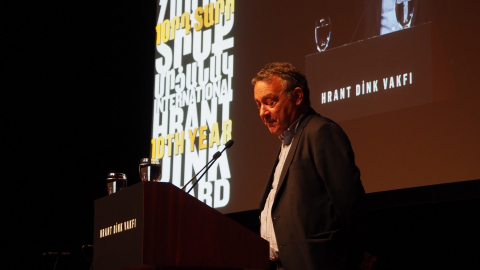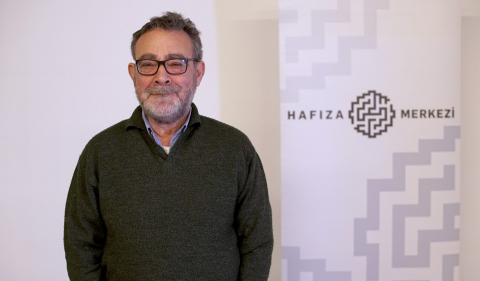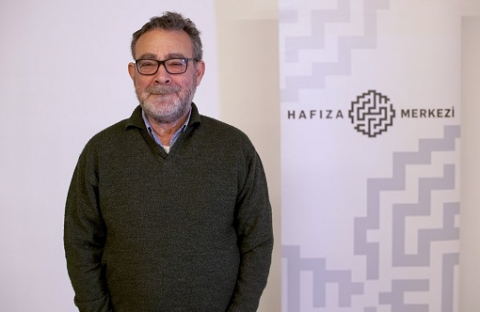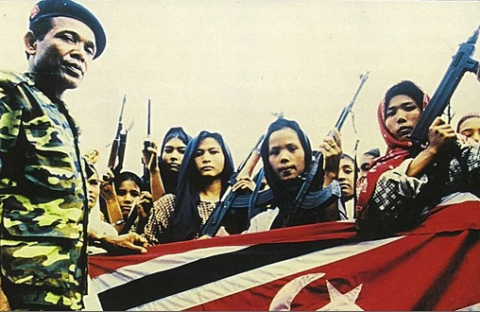[caption id="attachment_9540" align="alignnone" width="1500"]

Hafiza Merkezi co director Murat Çelikkan received the Hrant Dink Award on its 10th year.[/caption]
The 2018 Hrant Dink Awards has been presented to Hafiza Merkezi Co-director Murat Çelikkan and Mwatana for Human Rights from Yemen. This year marks the 10th anniversary of the award, organized annually since 2009 after the assassination of Turkey's leading peace figure, Armenian journalist Hrant Dink. Hrant Dink Award is presented to people who work for a world free of discrimination, racism and violence, take personal risk for their ideals, use the language of peace and by doing so, inspire and encourage others. You may read below Murat Çelikkan's full award speech.
I thank you very, very much. This is the second award I’ve received this year.
I suppose when a person is thrown into jail, regardless of being 60 years old, to “tame” him down, he gets a lot of awards. I never got any awards for my adventures in jail when I was in my 20s; nobody does. Of course, if you continued to go into jail at the age of 60, that’s also a sign that you aren’t going to settle down and be tamed.
All joking aside, I thank you very much. I feel more honored by this award than any I’ve received in my life; it’s the one I would want the most. And there’s one reason for this: That it’s the Hrant Dink Award.
I feel this honor not only because I knew and worked together with Hrant. This name, just like the struggle for human rights, charges you with a mission with no end. It’s really true; eleven years have passed since Hrant was killed in 2007, and the perpetrators are still being judged. Despite all his lawyers’ efforts, we’re still far from exposing all of the true perpetrators. And lets say that happens. Will the whole truth be laid bare? That will lead to a continuing mission: To expose all of Turkey’s murders, conspiracies, assassinations, massacres, bombs, and a deep state identified with no adjectives but by bombs, the state itself, and to convict it. It’s not over! There’s an account to settle for living and being killed as a minority in Turkey. There’s the Armenian genocide; there’s the racism and discrimination that have become nearly part of our everyday lives as Turks. There is getting the sentence, “Ayşe throw the ball to Agop” in elementary school readers.
Naturally, it’s no coincidence that Hrant Dink’s name is synonymous with the struggle for rights in Turkey.
“The award I am receiving today bears the name of a good person. The award I am receiving today bears the name of a person who was murdered.”
This characterization, with which I wholeheartedly agree, is by Ahmet Altan, in his 2011 International Hrant Dink Award acceptance speech.
Ahmet Altan has been in prison since September 10, 2016!
İsmail Beşikçi, who received the award in 2012, spent his time in prison in a way above and beyond any normal person and any lifespan.
The “
Saturday Mothers,” who received the award in 2013, after being targeted by the Minister of the Interior, are trying to continue their quest for truth and justice; a quest they have pursued for 700 weeks while being arrested, assaulted, banned and criminalized.
And as for the other recipients:
After
Şebnem Korur Fincancı received the award, she went into prison like me for her solidarity with Özgür Gündem; fortunately she’s out.
KAOS GL... All manner of LGBTI+ demonstrations and events in Ankara are forbidden. Their Pride Marches, which drew wide participation with no incidents despite the presence of security forces, can no longer be held. It should be added that KAOS GL founder
Ali Erol was imprisoned for a week and is still out under judicial control.
Tahir Elçi, chairman of the
Diyarbakır Bar Association, was killed in 2015. The Bar continues its struggle for justice for him; they are trying to pierce the shield of impunity that is the rule in Turkey for this and similar murders, as they are for the still-blockaded Sur neighborhood.
Eren Keskin, beloved to all of us, is facing not only a fine of hundreds of thousands of lira, but hundreds of years in prison as well.
So it’s safe to say that we’ve become a community of people who have gone into prison and received the award, and received the award and gone into prison. And that the awards are right on the mark.
But this goes hand in hand with the steady rise in nationalism, fascism and racism that are a disease in Turkey and in the world.
In the 20th century, human rights and democracy gained in esteem through regret for genocides and world wars; now in the 21st century, they seem to have lost this esteem.
Wars, migrations brought about by wars and poverty, increasing xenophobia in the west, enmity toward foreigners and nationalist, racist regimes intolerant of differences –traditionally attributed to human nature but actually originating in Europe– are becoming as frequent in the West as they are in the East. More and more, fascist-leaning administrations that try to eliminate diversity in their societies are constricting and smothering the civilian sector in which democratic politics and human rights can flourish and grow. In such an environment, politics itself becomes impossible.
Just as in Turkey… Institutions of justice, which should be our assurance against such practices, have been completely derailed. One by one, the mechanisms that provide protection to the individual against the state are being demolished.
We live in a country that is trying to criminalize every humane, democratic and peaceable demand.
Like justice, truth is also being overtaken by tyranny. It’s becoming difficult to talk about truth or its power; and easier to talk about the power of beliefs. We live in a Turkey dominated by whatever those in power want people to believe. Truth is now dictated by those with the power to enforce belief in what they want people to believe, and justice functions in complete subjection to this power; which is to say, it does not function.
Yet despite this negativity, those who pursue truth have not ceased to exist. They do not become exhausted. They do not allow societal memory to form in the way dictated by those in power; they do not allow justice to function like a scourge of the administration, or the obstruction of truth.
Whatever their jobs and professions, they are defenders of human rights.
I am here today because certain people stand guard at the Human Rights Association branch office every day in case there may be an application. I am here today because there are lawyers who go to the door of the police station or security when people are arrested. There are academicians who give their signature so that people will not die; people who gather for a pride parade despite all oppression, obstruction and bans; people who go and provide support to the Saturday people in Istanbul, Diyarbakır, Cizre and Batman. There are those who write news about them, who tally the violations, who seek justice, who try to hold people to account. There are those who reject the mass selfishness called nationalism. Who resist the spirit of the times. Who refuse to submit to the spreading mediocrity of evil, and listen to the voice of their conscience.
I am here because despite being sentenced to ‘civil death’ against this policy of blood and death, there are people who raise their voices for peace.
It is to them that I owe my presence here, and my receipt of this award today. To the
Leman Yurtsevers, the
Gülseren Yoleris, the
Raci Bilicis, the
Filiz Karakuşs, the
Sevim Salihoğlus, the
Ümit Biçers; to them, and the hundreds and thousands of people like them.
To all those who make the struggle for human rights their lives.
This award is the result of a collective struggle. I share it with all my colleagues at
Hafıza Merkezi, with
Emel Ataktürk Sevimli, with whom our struggle for human rights goes back farthest, my co-director at work and my director at home
Meltem Aslan, my friend
Osman Kavala who has been held in prison with no trial or indictment, and everyone who is in jail as a result of their struggle for rights.
I would like to believe that I’m receiving this award because I’m a good person.
It is the struggle for human rights that will light the torch of hope against hopelessness, not only in Turkey but in the entire world. “There is a crack in everything; that’s how the light gets in.
In the name of hope, I accept this award.
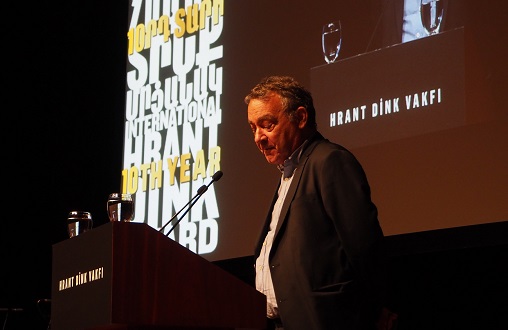
 Hafiza Merkezi co director Murat Çelikkan received the Hrant Dink Award on its 10th year.[/caption]
Hafiza Merkezi co director Murat Çelikkan received the Hrant Dink Award on its 10th year.[/caption]
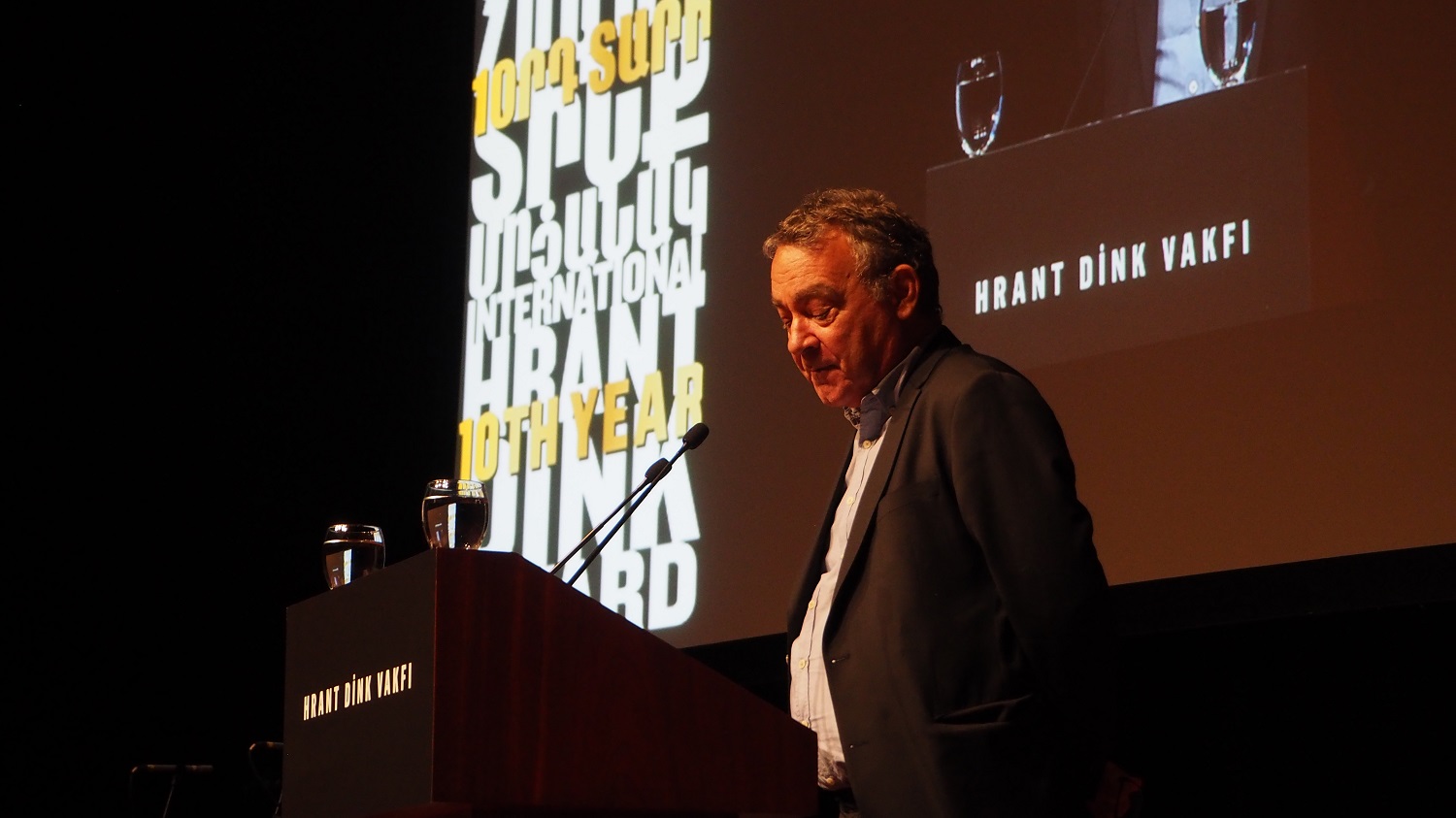 Hafiza Merkezi co director Murat Çelikkan received the Hrant Dink Award on its 10th year.[/caption]
Hafiza Merkezi co director Murat Çelikkan received the Hrant Dink Award on its 10th year.[/caption]
